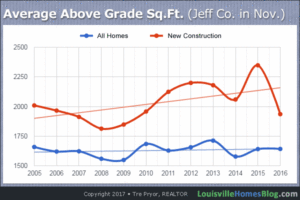Buying a property is a significant life decision. It will undoubtedly involve a substantial financial investment. Whether it’s your first home, a vacation getaway, or an investment property you’re eyeing, the process calls for proper consideration and due diligence. In this article, we’ll look at six major pitfalls when buying property that you need to be aware of.

The most common pitfalls can cause major problems and it’s simple to educate yourself up front. Let us explore some of these issues to help you navigate the property market more wisely.
1. Unrealistic Budgeting
One of the first pitfalls when buying property is holding to an unrealistic budget. Many buyers are often fuelled by excitement and anticipation that they end up falling into the trap of buying more than they need or, even worse, can afford.
This costly miscalculation frequently stems from focusing solely on the down payment and monthly mortgage payments and overlooking other inherent costs of homeownership. It is easy to forget to account for property taxes, homeowners’ insurance, maintenance, utilities, and potential homeowners’ association fees.
Moreover, the allure of attractive financing options can blur your financial judgment, leading you to commitments that stretch your finances too thin. Such oversights and emotional decisions can culminate in financial strain for you. That said, a significantly low price might indicate hidden issues or potential disputes.
2. Neglecting a Thorough Inspection
The draw of a seemingly perfect property or the fear of missing out in a competitive market can lead you to make hurried decisions. For example, you might naively trust that a home’s appearance is indicative of its overall condition, or you might be swayed by persuasive sellers downplaying the need for an inspection.
Well, neglecting this vital step can have dire consequences in the long run. Hidden issues such as structural defects, outdated electrical systems, plumbing problems, or even pest infestations can lurk beneath the surface. If you are buying a home, then look out for obvious signs of wear and tear, such as broken fixtures, cracked walls, or a leaky roof that might suggest deeper issues with the property.
Uncovering these issues after the purchase can lead to extensive, costly repairs and a significant decline in the property’s value. Always hire a qualified home inspector to assess the property thoroughly.
3. Ignoring Location Considerations
You may inadvertently place less emphasis on a house’s surroundings because of the appeal of the home’s aesthetics or its price. This is one of the pitfalls when buying a property that may slip past you.
Do not neglect to investigate, not just the home and its adjacent neighbors, but also include a thorough review of the entire area. If you don’t, you may suffer long-term repercussions. You could find yourself in an area with limited amenities, poor school districts, or inconvenient public transportation, impacting your daily convenience and lifestyle.
Over time, an unfavorable location might also hinder property appreciation, affecting the resale value.
Always remember, that a high number of properties for sale, signs of vandalism, or an abundance of short-term rentals might indicate a declining neighborhood. Also, if nearby property values have been volatile, it might indicate economic instability in the region.
4. Foregoing a Title Search
When you’re eager to purchase a home or a piece of land, it can be tempting to cut corners, especially if you’re looking to save both time and money. A common oversight is foregoing a title search. You risk investing in a property that has undisclosed financial or legal complications when you skip a title search. These hidden issues could result in significant financial burdens or even the possibility of losing the home.
Let’s say you’re looking for “land for sale in Arkansas” in order to build a home on it. First, it’s always smart to find a trusted real estate agent to help you throughout the process. Next, make sure to add your voice to each step along the way. While your agent may be great, there’s always the chance that something gets past him. You’re there to add another line of watchfulness. In this case, double-check that a title search will be completed before you sign any paperwork at the closing table.
5. Skipping Legal Guidance
Frankly, property purchase transactions often involve complex legal contracts and paperwork. This is why you might need good lawyers to help you through the process. The right lawyers will not only ensure that contracts are in your best interest but also identify potential risks that could cost you dearly down the line.
Without a lawyer’s expertise during the process, you might overlook important clauses in the agreement, fail to understand local property laws, or even miss crucial disclosures.
Again, purchasing a home, land or any property is a significant financial commitment. The legal troubles and expenses you might incur if you make costly legal mistakes could far outweigh the initial cost of a lawyer’s guidance before you spend your money!
6. Ignoring Market Trends
While it’s natural to prioritize personal preferences and immediate needs, neglecting to consider the broader market context can be risky.
If you’re unaware of whether the market is in a boom or bust, or if interest rates are projected to rise, you might buy at an inopportune time.
Ignoring market trends can lead to purchasing a home at an inflated price or locking in a higher interest rate on a mortgage, both of which could impact your financial stability and the property’s potential resale value.
So, while it’s important to find a home that resonates with you personally, it’s equally crucial to stay informed about the market to ensure a sound investment.
Wrapping Up
The pursuit of any kind of investment property is thrilling, but it’s crucial to approach this journey with a discerning eye. Being well-informed and working with reputable sellers and professionals to aid in the process can save you from costly mistakes and potential heartaches.



